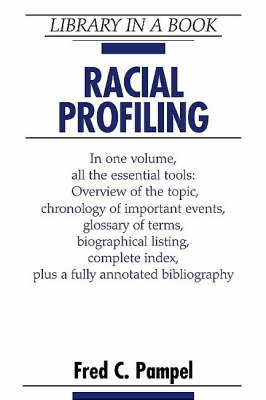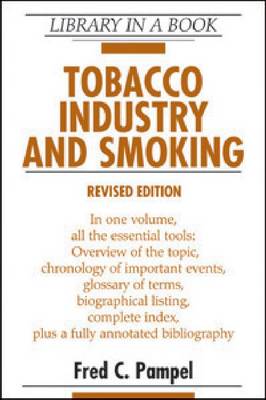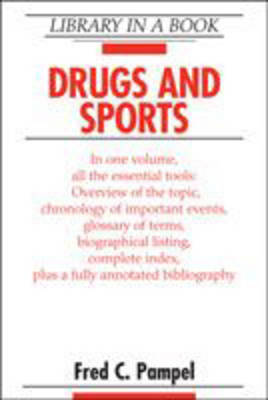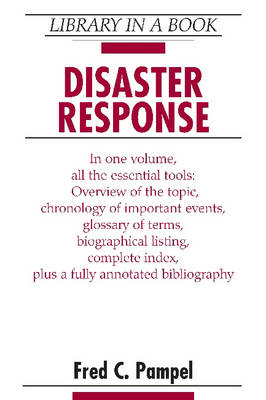Library in a Book
5 total works
Is membership in a group ever a sufficient reason for special investigation, or do such actions always violate civil liberties? Is racial profiling effective in crime prevention? Racial Profiling addresses these and other related questions and explores the highly charged controversies that they reflect. It provides an overview, reference resource, and research guide that will interest not only students, teachers, and librarians but also activists, policymakers, participants in the criminal justice system, and members of the public interested in issues of race and crime.
The elderly have traditionally been a segment of the population that is treated with respect and veneration. Numerous societal changes, however, have raised practical concerns about the rights of the elderly and how to best care for an aging population without overburdening younger and future generations. Necessities and structures that many take for granted - employment, medical care, and housing - are often difficult for the elderly to obtain. Government programs, such as the Social Security Act and Medicare, are constantly threatened by privatization. As baby boomers continue to retire, questions surrounding the rights of the elderly become more and more pronounced. ""Rights of the Elderly"" provides an overview of the history of this timely topic and the opinions surrounding it - from the Social Security Act of 1935 to the current activism of groups such as AARP and the Gray Panthers. Examining recent court cases such as Kathi Cooper et al. v. IBM Personal Pension Plan and IBM Corporation and documents such as The Age Discrimination in Employment Act of 1967, this new volume provides multiple perspectives and decisions surrounding this issue while also plotting a course for the future of legislative action. A comprehensive and up-to-date overview essay, capsule biographies, a large annotated bibliography, a chronology of significant events, organization and agency listings, and a glossary provide useful information for students, teachers, librarians, older persons, activists, policy makers, and the general reader interested in this controversial issue. Coverage includes: whether or not the systems devised to protect the elderly - including Social Security and Medicare - will be sustainable; whether or not it is fair that younger workers must contribute to funds that will probably be depleted by the time they retire; who will take care of the aging population and guarantee their safety as reports of nursing home scandals and medical malpractice emerge; and whether or not elderly individuals have too few rights and whether these rights infringe on others.
As the single largest preventable cause of premature death, tobacco use kills hundreds of thousands of people each year. A host of new laws has increased taxes on cigarettes and restricted smoking in public places, and U.S. smoking rates have declined. But nearly one in five adults in the United States still smokes. Despite vigorous criticism from public health advocates and strict limits on advertising and marketing, the tobacco industry continues to promote and profit from its addictive product. Is the tobacco industry responsible for the harm caused by smoking? Should the government regulate tobacco as much as it regulates other drugs? Do tobacco ads manipulate consumers - particularly those at young ages - into adopting a harmful product? ""Tobacco Industry and Smoking, Revised Edition"" addresses these serious and controversial questions as well as many others that pertain to smoking in the United States. Featuring up-to-date legal and historical overviews, reference resources, statistics, and a research guide, this new book will help readers understand the impact of smoking on their lives and communities. Coverage includes: new scholarship on the history of tobacco use in America; an overview of legal issues related to tobacco use, including recent laws that have increased cigarette taxes and restricted smoking in public places; an examination of current trends, such as the shift in tobacco marketing and sales to Asia, Africa, the Middle East, and Latin America; and, excerpts from tobacco-related documents such as the World Health Organization's Framework Convention on Tobacco Control.
Although media headlines associate performance-enhancing drug use with high-profile professional athletes, this problem affects all segments of society. Scandals have publicized a problem that even extends to young boys and girls who attempt to mimic their athletic heroes or use drugs as a way to achieve what they believe is an athletic physique - often causing extensive damage to their physical and emotional health. Many amateur athletes and Olympians have also relied on illegal performance-enhancing drugs in the past, and now their careers are characterized by questions and controversy surrounding their personal or professional ethics. ""Drugs and Sports"" provides an overview of the history of this topic, as well as the opinions surrounding it. From the performance-enhancement methods of ancient Greeks to the recent accusations of drug use among high-profile professional athletes, this illuminating volume puts this timely issue in context. Contemporary case studies provide multiple perspectives and decisions surrounding this issue while also plotting a course for how drug use in sports will change with advances in technology. ""Drugs and Sports"" addresses all sides of this issue, making this the perfect reference for students, teachers, librarians, medical personnel, activists, policymakers, and general readers interested in this topic.
It is impossible to ignore the relentless media reports of various human-made and natural disasters and the constant threats they pose to our society. Beyond the news headlines, recent disasters have prompted the restructuring of the U.S. government, namely the formation of the Department of Homeland Security and the reorganization of the Federal Emergency Management Agency (FEMA). With the ever-present threat of disasters from hurricanes, tornadoes, earthquakes, floods, wildfires, landslides, drought, winter storms, nuclear accidents, terrorist attacks, and chemical contamination, the role of government in protecting the population seems more important than ever.""Disaster Response"" explores the issue of natural and human-made disasters and the nation's response to them in the popular Library in a Book format. It begins with a comprehensive, up-to-date overview of the history of the topic and the opinions surrounding it. Contemporary case studies range from the terrorist attacks of 9/11 to such natural disasters as Hurricane Katrina. Capsule biographies, a large annotated bibliography, a chronology of significant events, organization and agency listings, and a glossary also provide invaluable information for students, teachers, librarians, activists, policymakers, and general readers interested in exploring the controversy surrounding this issue.




